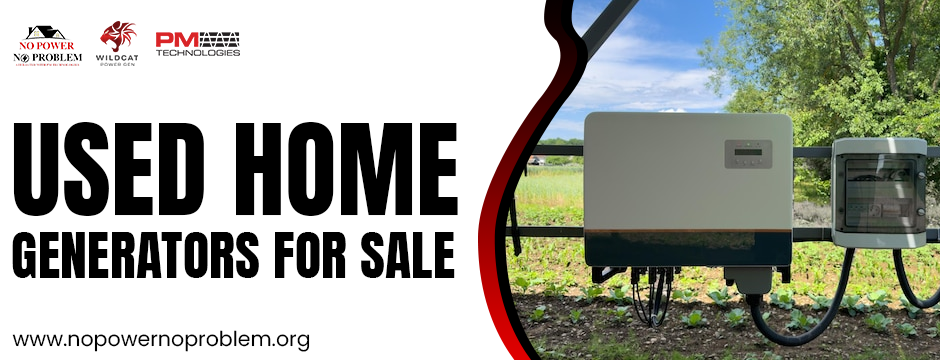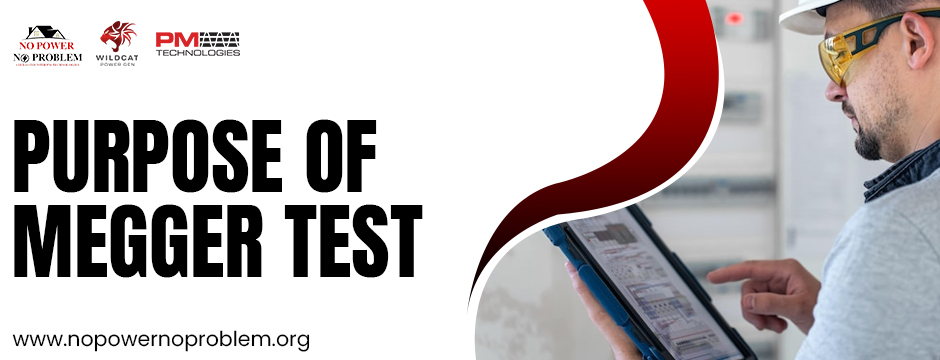Generators are a vital backup power source for many homes, especially in areas prone to storms, grid failures, or unpredictable weather. While new generators can be a significant investment, used home generators for sale offer a cost-effective way to secure reliable backup power without breaking the bank. However, not every used generator is a bargain — some may be more trouble than they’re worth.
Knowing how to evaluate a pre-owned unit can make the difference between buying a dependable backup system and inheriting someone else’s headache. In this guide, we’ll explore the clear signs that a used generator is still worth buying and can serve your home reliably for years to come.

Low Total Hours of Use
One of the most important indicators of a generator’s remaining lifespan is the total number of hours it has been in operation. Just like mileage on a vehicle, engine hours reveal how much wear the internal components have endured.
- Standby home generators that have only run during occasional outages or for regular maintenance cycles typically have fewer hours and minimal wear.
- A generator that’s been running continuously in a commercial setting may have high hours and more internal wear, even if it looks clean from the outside.
Pro Tip: Many modern generators have hour meters built into their control panels. Ideally, look for units with less than 500 total hours, especially if they have been well-maintained.
A Consistent Maintenance History
A used generator with a documented maintenance history is far more trustworthy than one with an unknown past. Regular servicing — including oil changes, filter replacements, and load bank testing — is essential to a generator’s health.
When reviewing a potential purchase, ask for:
- Service logs or receipts
- Any manufacturer-recommended inspection reports
- Proof of repairs or part replacements
A generator that’s been maintained according to manufacturer guidelines is much more likely to offer reliable performance.
Clean Physical Condition
Visual inspection tells you a lot about how a generator has been treated. Signs of good condition include:
- Clean housing with minimal rust or corrosion
- No oil or fuel leaks around the engine block
- Intact wiring and connectors without fraying
- Solid mounting frame with no structural damage
While some cosmetic wear is normal for used equipment, excessive rust, dents, or missing components may indicate poor storage conditions or rough handling.
Strong Performance During a Load Test
A load test is the best way to see if a generator can actually deliver power consistently under demand. During a load test, the generator is run at its rated capacity for a set period, simulating real-world usage during a power outage.
A good used generator should:
- Start quickly without excessive cranking
- Maintain a steady output without fluctuations
- Run smoothly without strange noises or smoke
- Keep temperature levels within normal operating range
As part of this inspection, performing a megger test can help determine the condition of the generator’s insulation system, ensuring there are no hidden electrical faults that could affect performance or safety.
Original Manufacturer Components
When buying used, it’s worth checking if the generator still has its original manufacturer parts, such as the engine, alternator, and control panel. While certain parts like filters and belts may have been replaced, major component replacements can sometimes signal past failures.
Brands like Kohler, Generac, and HI-Power are known for their long-lasting components. If the generator still has its original parts in good working order, it’s a strong sign it has plenty of life left.
No Signs of Fuel System Contamination
Generators can run on different fuel types — natural gas, diesel, or propane. Regardless of the type, the fuel system should be clean and free from contamination.
For diesel and gasoline units:
- Check for water, sludge, or rust in the fuel tank.
- Look at fuel filters for signs of clogging or debris.
For natural gas or propane:
- Inspect the regulator and fuel lines for leaks or cracks.
A contaminated fuel system can lead to expensive repairs, so this inspection is critical.
Compliance with Current Emission Standards
Depending on where you live, local or federal regulations may require generators to meet certain emission standards. A generator that is compliant ensures you avoid legal issues and environmental concerns.
Ask the seller if the generator’s engine meets EPA or local emission requirements. In some areas, older non-compliant units cannot be legally installed or operated.
Reasonable Age Compared to Expected Lifespan
Generators have different lifespans depending on brand, size, and maintenance. A high-quality standby generator can last 20–30 years with proper care, while portable units may last 10–15 years.
If you’re buying a used generator that’s only a few years old and has a low number of operating hours, you could be getting near-new performance for a fraction of the cost.
Availability of Spare Parts and Service Support
Before purchasing, check if the generator’s brand still offers replacement parts and authorized service support. Some older or discontinued models may be difficult to repair due to parts shortages, making them a risky investment.
Stick to well-known brands with strong dealer networks — this ensures you can get genuine parts and skilled technicians for future maintenance.
A Fair Price Compared to Market Value
Even if a used generator is in good condition, overpaying can reduce the value of your purchase. Compare prices for similar used home generators for sale in your area. Consider the brand, age, condition, and included accessories like transfer switches or weatherproof enclosures.
If the generator is priced fairly and meets all the above quality indicators, you may have found a deal worth securing.
Why We Recommend Caution — and Expertise
While there are many bargains in the used generator market, there are also poorly maintained units that can lead to costly repairs. The safest approach is to:
- Work with a reputable dealer
- Have a certified technician inspect the unit before purchase
- Avoid buying without seeing the generator run under load
Your goal is to find a unit that’s not just affordable, but dependable when it matters most.
No Power No Problem – Your Trusted Source for Reliable Generators
At No Power No Problem, we understand that buying a generator is an investment in peace of mind. That’s why we offer both new and pre-owned generators that have been fully inspected, tested, and serviced by our factory-trained technicians.
We don’t just sell you a generator — we provide complete installation, ongoing maintenance, and 24/7 emergency service to ensure your home or business always has the power it needs. With locations in Wixom, MI, Grand Rapids, MI, and Dayton, OH, we’re strategically positioned to respond quickly throughout the Great Lakes region.
When you choose us, you’re choosing reliability, transparency, and expertise. Whether you’re looking for used home generators for sale or Purpose Of Megger Test, we’ll guide you to the best option for your needs and budget.

Conclusion
Buying a used generator can be a smart, budget-friendly way to secure backup power — but only if you know what to look for. Low hours, a strong maintenance history, clean physical condition, and solid performance under load are all positive signs. Ensuring compliance with emission standards, availability of spare parts, and a fair price further increases your chances of getting a dependable unit.
If you take the time to inspect thoroughly or work with a trusted provider like No Power No Problem, you can find a used generator that delivers years of reliable service when you need it most. In the end, the best generator is the one that’s ready to start when the lights go out.
